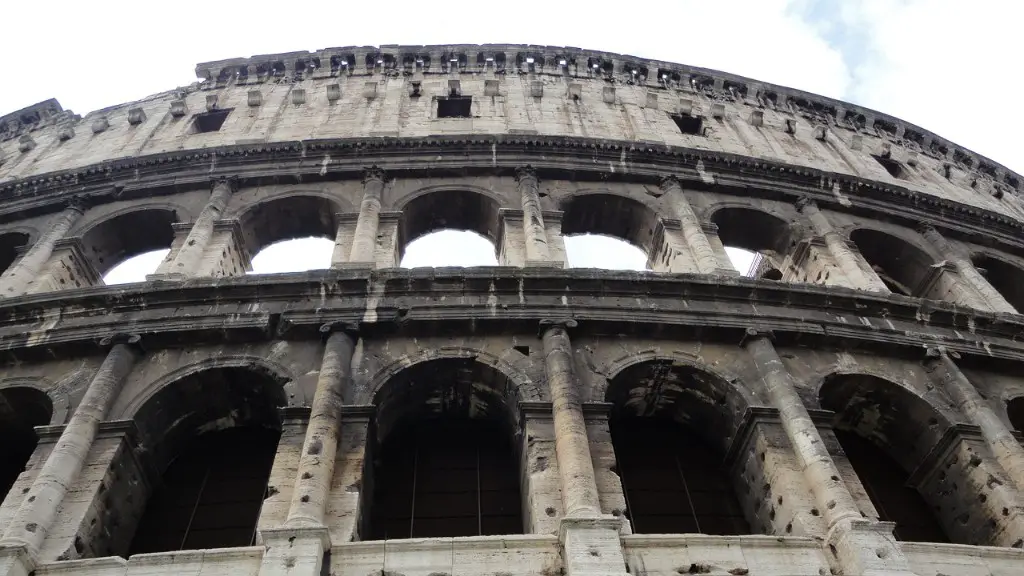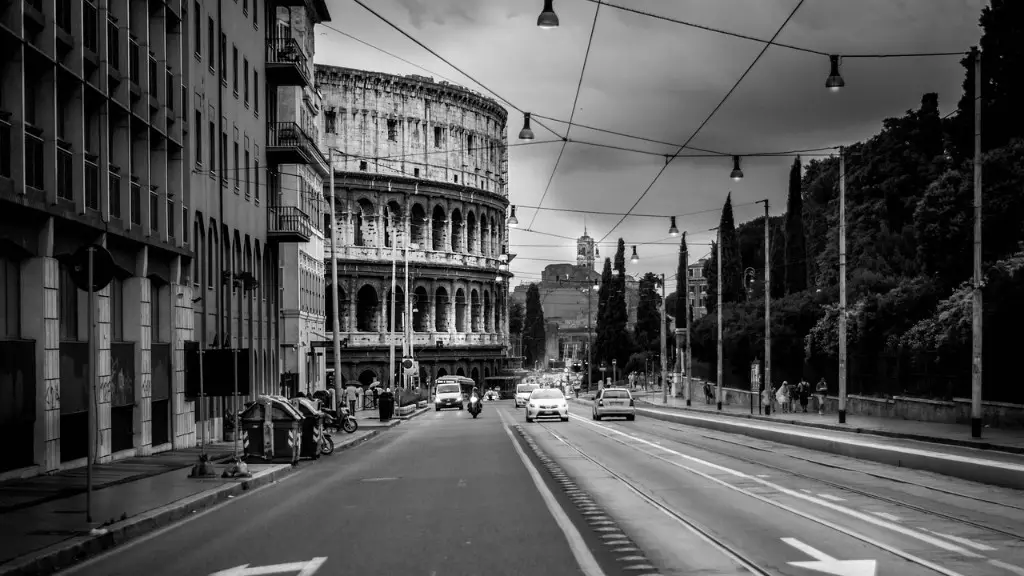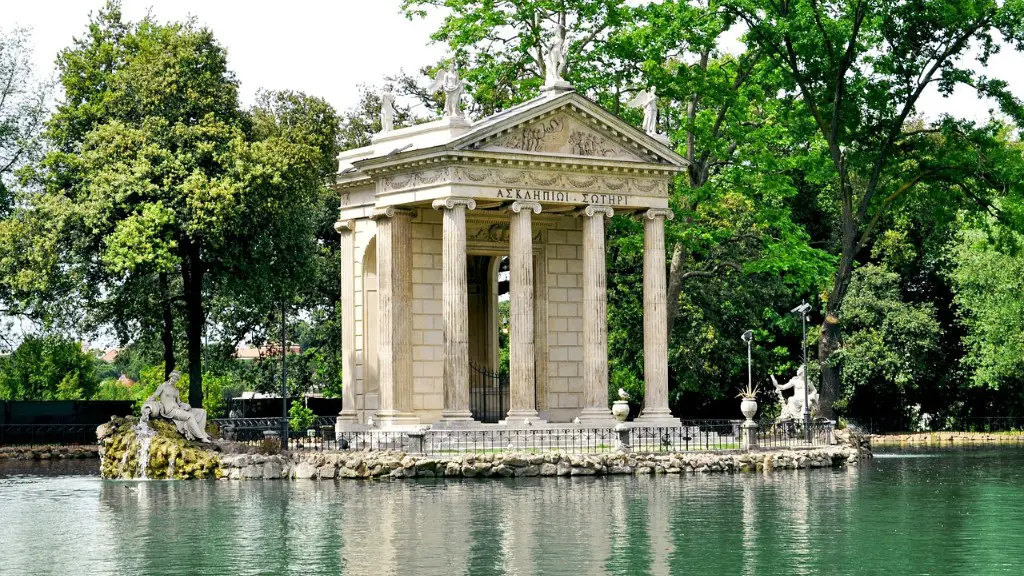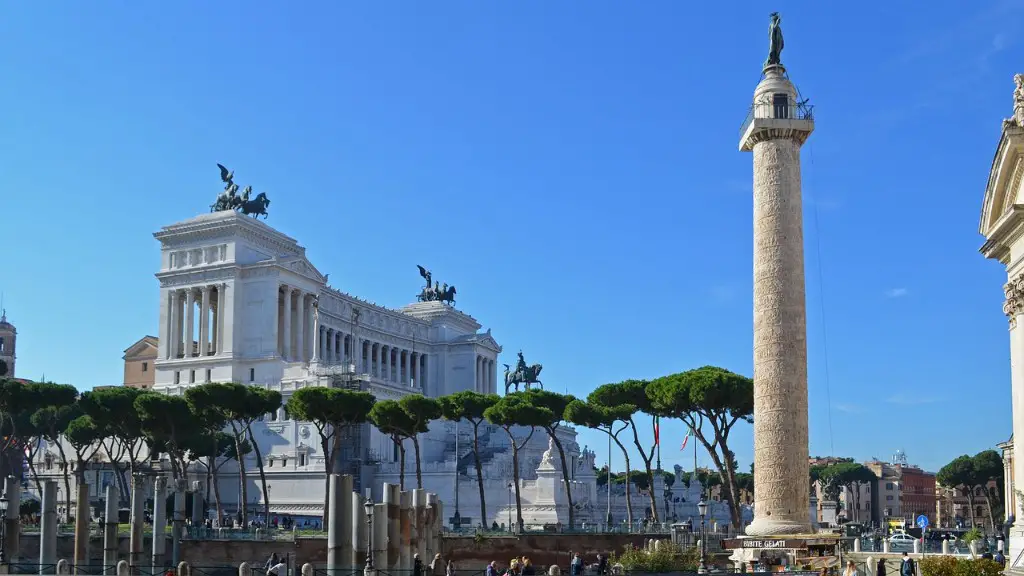Introduction
An important part of ancient Roman history is the story of who took over the city. From its humble beginnings under the rule of Etruscan kings, Rome went through many changes in government, from being a Republic to an Empire at its height. This article looks at the different phases in which Rome became the capital of the world for three centuries, who was responsible for taking over Rome, as well as the lasting impact of their rule.
Early Times
In the early days of Rome, the city was ruled by Etruscan kings. This period lasted until around 509 BC, when the Republic was declared. At this time, Rome was a democracy and the citizens had a great deal of power and influence. This period of Republic lasted until 27BC, when Gaius Julius Caesar was given the title of “dictator perpetuus”, or permanent dictator. This marked the beginning of the Empire.
The Roman Empire
The Roman Empire was ruled by a series of emperors who held complete control over the city. These emperors held absolute power over their subjects and held a great deal of influence over the wider world. They were often strong military leaders and were responsible for the expansion of Rome’s borders. Augustus was the first emperor of Rome and he held the throne from 27BC to 14AD.
The Empire Splits in Two
After the death of Theodosius I in 395 AD, he left his empire divided between his two sons, Arcadius and Honorius. They divided the territories of the eastern and western parts of the Empire, and each became Emperor in his own right. The division of the Empire was completed in 395 AD and the Western Roman Empire officially came to an end in 476 AD.
Fall of Rome
Although much of the fall of Rome has been attributed to invasions from the northern barbarians, experts suggest that the city’s decline was due to economic instability, civil war and political corruption. These issues had been underlined since the division of the empire, and combined with the invasions, led to the fall of the city in 476 AD.
The Byzantine Empire
The Byzantine Empire was a continuation of the Roman Empire that was founded in the 4th century under the rule of the Byzantine Emperor Constantine I. It was a powerful empire that stretched from the Danube to the Euphrates, and lasted for nearly one thousand years.
TheLegacy of Ancient Rome
Ancient Rome continues to be an influential force in history, even in the present day. Its system of laws, military strategy, engineering and architecture are still evident in many societies around the world. It was a period of great technological advances and progress in many areas and its legacy continues to shape society today.
Impact of Rome on Religion
The impact of the Romans on the Christian religion was profound. Christianity had originated in Palestine towards the end of the 1st century AD but it was under the rule of the Roman Empire that it was able to expand and spread quickly. In 313 AD, Emperor Constantine issued the Edict of Milan which granted religious tolerance to Christians throughout the Empire, leading to the rapid spread of the religion.
Rome’s Influence on Government
Rome’s system of government has been adopted in many countries, with many contemporary laws being based on principles laid out by Roman law. This has been particularly true in the areas of civil law and criminal justice. Rome also developed the concept of empire, which has been adopted by many nations as a way of creating a large, unified state.
The Significance of Rome for Art and Culture
The Roman Empire had a huge influence on art and culture. Its public architecture was monumental and grand and today, many ruins of ancient Roman buildings still exist around the world. Roman art and culture was also heavily influenced by the Greeks, producing sculptures, reliefs and mosaics that are still appreciated today.
Rome’s Impact on Language
The Roman Empire had a huge influence on language. Several Indo-European languages evolved under Roman rule, such as Latin, which is still studied in schools today. Latin was the language of the Roman Empire and was spread throughout its provinces, creating the foundation for many of the languages used in Europe today.
Rome’s Influence on Literature
Rome had a great impact on literature, with many of its works still being read today. The works of Virgil, Horace and Cicero are still appreciated around the world, as are the epic histories of Livy and Sallust. The Roman works were often lighthearted, satirical and educational, reflecting the values and outlook of the people of the Empire.
Rome’s Impact on Science and Medicine
The Romans had a great impact on the development of science and medicine. They studied engineering and mathematics, as well as philosophy and botany. Roman doctors wrote books about medicine, drawing on their knowledge of anatomy, diet and hygiene to create effective treatments for their patients.
Conclusion
The impact of the Roman Empire on the world is still felt today. From its government to its art and culture, it has left a lasting legacy that continues to shape society. Who took over Rome was an important part of its history, which had a profound and everlasting effect on the face of the world.



